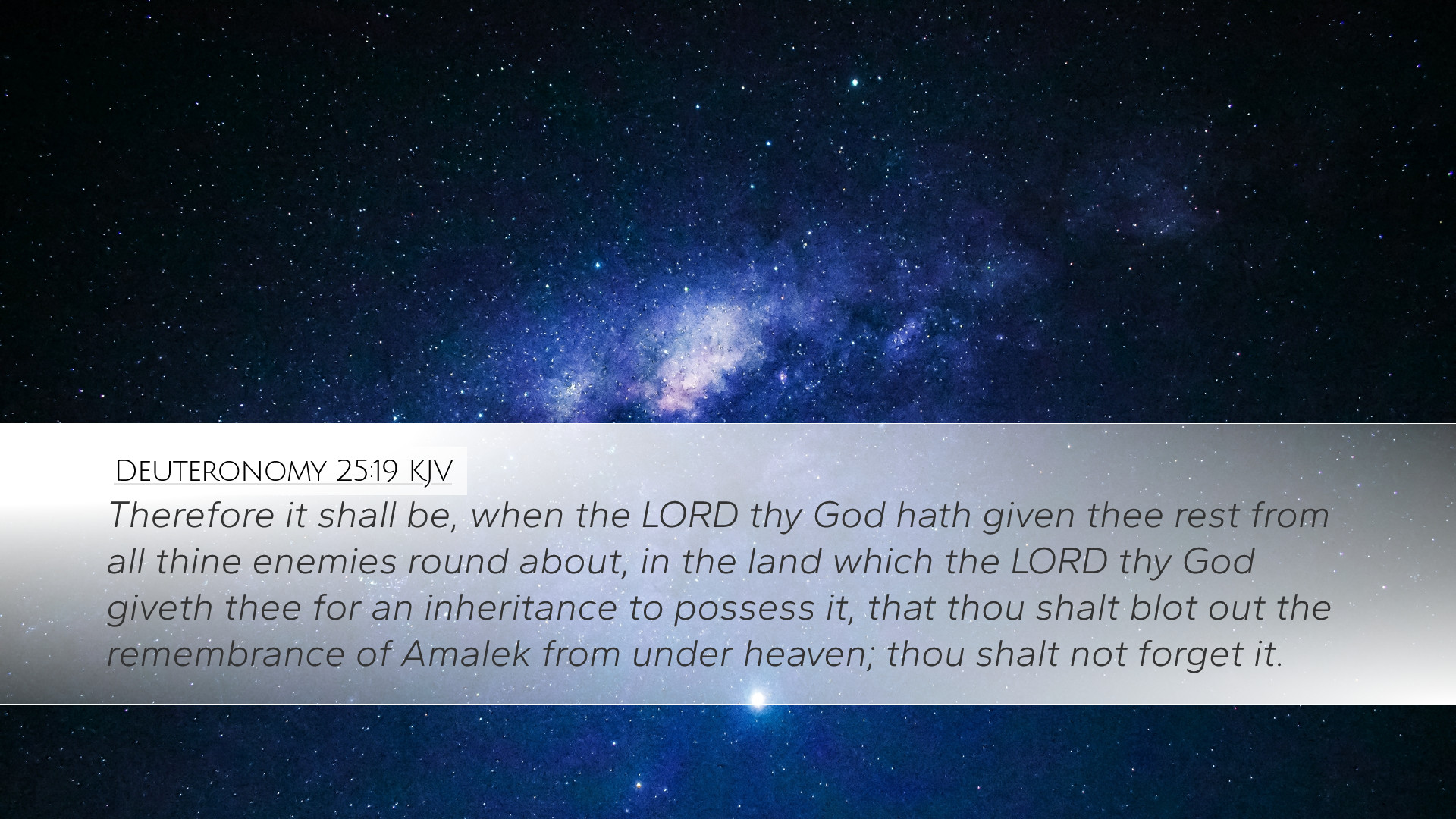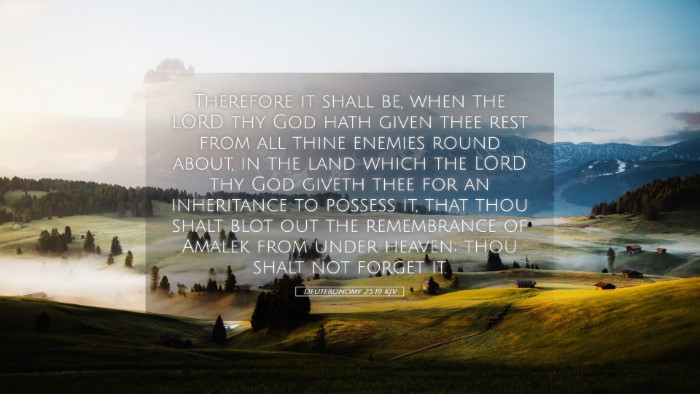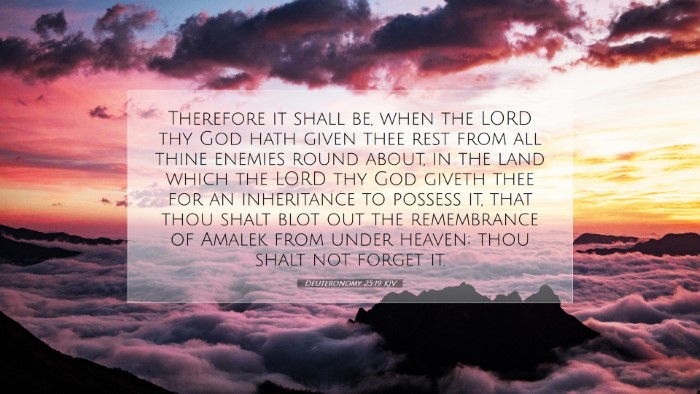Commentary on Deuteronomy 25:19
Verse Context: Deuteronomy 25:19 states, "Therefore it shall be, when the LORD your God has given you rest from your enemies all around, in the land which the LORD your God is giving you to possess as an inheritance, that you will blot out the remembrance of Amalek from under heaven. You shall not forget."
Introduction
This verse serves as a significant admonition in the historical context of Israel's journey to the Promised Land. The command to eliminate the memory of Amalek brings forth themes of justice, divine judgment, and the remembrance of God's deliverance. It resonates deeply with theological reflection on the nature of God’s justice and the moral obligations of His people.
Commentary Insights
1. Historical Background
Matthew Henry provides a comprehensive examination of Amalek's historical antagonism towards Israel. Amalek is viewed as a nation emblematic of all that is contrary to the chosen people of God. His commentary suggests that Amalek's initial attack on Israel (Exodus 17:8-16) represents not just a military threat but a spiritual one, indicating the perennial conflict between the people of God and forces that stand against righteousness.
2. Divine Justice and Remembrance
Albert Barnes emphasizes the significance of ‘blotting out’ the memory of Amalek. This command is grounded in God's promise to bring Israel to a place of rest, highlighting the protective nature of God over His people. Barnes suggests that God's judgment is not arbitrary but is rather a consistent theme throughout scripture, representing His righteousness and holiness. The destruction of Amalek’s memory serves a dual purpose: it underscores God's victory and deters future rebellion against His divine order.
3. Moral and Spiritual Implications
Adam Clarke delves into the moral implications of this command. He posits that the eradication of Amalek symbolizes the necessity of dealing decisively with sin. Clarke argues that Amalek represents the fleshly tendencies and sinful inclinations present in every believer; thus, the call to ‘forget’ Amalek can be seen as a call to eliminate sinful habits from our lives. This interpretation invites pastors and theologians to examine personal sanctification in light of communal sin.
4. Theological Considerations
This verse raises profound theological questions about God’s nature and our understanding of divine justice. The command to remember Amalek is juxtaposed with God’s mercy, thereby providing a fuller picture of His character. It teaches that divine love does not ignore injustice but rather upholds righteousness. The interplay of remembering and forgetting highlights the complex relationship between God's mercy and His judgment.
Practical Applications
-
Faithfulness in Remembrance: Pastors can encourage their congregations to remember God’s past faithfulness as they face present challenges. Just as Israel is reminded to remember the actions against Amalek, modern believers should reflect on their spiritual battles and victories.
-
Dealing with Sin: The call to blot out Amalek serves as a metaphor for dealing with sin decisively. This reflects the necessity of spiritual warfare and the Christian’s responsibility to resist fleshly temptations.
-
The Justice of God: Understanding God’s judgment can lead to deeper theological discussions among students and scholars. This verse calls to examine how we perceive God's justice historically and in contemporary contexts.
Conclusion
Deuteronomy 25:19 serves as a rich wellspring for theological reflection, offering insights into justice, memory, and the character of God. It invites both pastors and scholars to grapple with the implications of this command in their theological frameworks and practical ministry approaches. The verses challenge believers to understand the gravity of spiritual warfare and the importance of living in remembrance of God’s deliverance, prompting a holistic approach to scripture in light of both historical and modern applications.


